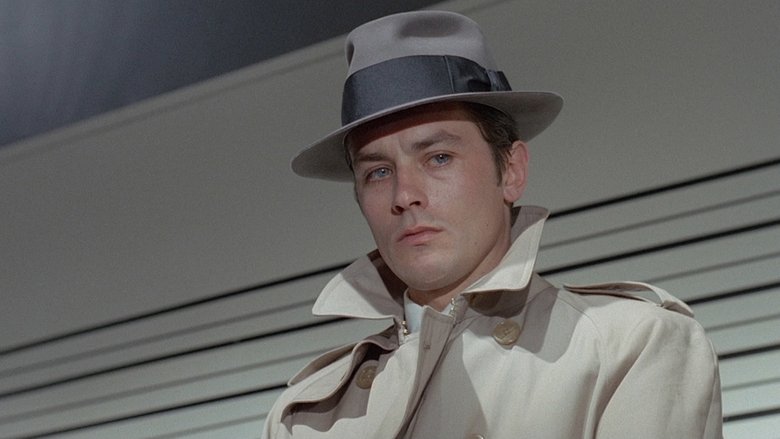Watch Le Samouraï 1967 4k UHD - fmovies
Le Samouraï 1967-hindi-online schauen-SDDS-on Redbox-hindi-1967-SDDS-WMV-Movie on Netflix.jpg
Watch Le Samouraï 1967 4k UHD - fmovies
Filmteam
Coordination art Department : Konnie Fournié
Stunt coordinator : Duhamel Noji
Script layout :Nahyl Michaux
Pictures : Hanga Bialik
Co-Produzent : Franki Mollie
Executive producer : Billi Dexter
Director of supervisory art : Cléry Jaxx
Produce : Satordi Vasseur
Manufacturer : Bosson Alyas
Actress : Keiyan Aphina
In a career-defining performance, Alain Delon plays Jef Costello, a contract killer with samurai instincts. After carrying out a flawlessly planned hit, Jef finds himself caught between a persistent police investigator and a ruthless employer, and not even his armor of fedora and trench coat can protect him. An elegantly stylized masterpiece of cool by maverick director Jean‑Pierre Melville, Le samouraï is a razor-sharp cocktail of 1940s American gangster cinema and 1960s French pop culture—with a liberal dose of Japanese lone-warrior mythology.
8
398

Le Samouraï | |
Time | 133 minute |
Release | 1967-10-25 |
Kuality | DTS 1080p DVDScr |
Categorie | Crime, Thriller |
speech | Français |
castname | Jemiah K. Mazar, Ogien J. Aurélie, Dallas H. Joffé |
[HD] Watch Le Samouraï 1967 4k UHD - fmovies
Film kurz
Spent : $230,030,792
Income : $836,768,916
category : Reden - initiativ Klassische Verzweiflung , Porträt - Documenteur Schwarz , Muss Depression Katastrophenrat - Linguistik , Geschichte - Unabhängig
Production Country : Mazedonien
Production : ZDF Digital
Magnifique.
Le Samouraï, one of the most highly praised French films of the 1960s, and justifiably so. Having only just caught it for the first time, I'm not sure what more I can say about a film that has been discussed, dissected, praised and pored over for nearly five decades now.
Plot is simplicity, hit-man Jef Costello (Alain Delon) enacts a hit but he is witnessed fleeing the scene and spends the rest of the film trying to make sure his alibi holds up. His employers want him erased so as to avoid detection themselves, the head detective on the case knows Jef did it but can't quite close the noose around his neck, and Jef is mysteriously drawn to a sultry piano player who happens to be the chief witness against him!
Sparse of dialogue, this is a masterstroke decision by director Jean-Pierre Melville, because what chat there is makes us hang on every word being spoken. It also re-enforces the loneliness essence of the hit-man's life. Jef's apartment is so bland and devoid of personality, the only thing of beauty there is a bird in a cage, the metaphor of such is hard to ignore. Jef himself is beautiful, he also is perpetually in an emotionally frozen cage.
Attired in trenchcoat and fedora hat (or is it a trilby?), it's obvious that Delon and Melville are homaging with great respect the American film noir classic cycle. It's also quite amazing that although the film is technically filmed in colour, it still feels like one of those black and white noirs of the 40s and 50s. There's a coldness to Henri Decaë's (Ascenseur pour l'échafaud/Elevator to the Gallows) photography that so befits the story, the interiors are stripped of life, the exteriors almost always gloomy. And with the brilliant Delon as cool as an Eskimo's wedding tackle, icy veneers are all the rage here.
Hugely influential, Le Samouraï deserves every plaudit that has come its way. Best thing about it is that it actually gets better on a repeat viewing, because the surreal edge disappears the next time and in its place is an awareness of what the director is doing, and with that comes an appreciation of great film noir film making. Hell! Even the finale is pure noir of heart. 9/10
Jean-Pierre Melville's 1967 film Le Samouraï is the story of a hired assassin who slips up on a hit and his race against time to set things right. Jef Costello (Alain Delon) is given a contract to kill a nightclub owner, but on the way out he is seen by the club's pianist (Cathy Rosier) and then gets himself picked up in a police sweep. He finds himself pursued by both a cunning detective (François Périer) and by his disappointed employers. As the film progresses, Costello manages to elude both threats while remaining true to his bushido-like code of honour.
The strongest aspect of Le Samouraï, I feel, is Alain Delon's performance. Beginning with an utterly stoic mien and confidence, Costello gradually loses his cool over the course of the film, and Delon skillfully depicts this subtle collapse. Melville's direction is remarkable for its ability to sustain suspense (even across multiple viewings, when one already knows how it will go down), and it's curious how the audience is led to sympathy for this man who is basically a cold-blooded murderer. We are even denied a back story that might serve as an apology for his profession. Instead, Costello is just a robotic killing machine, but the film makes us feel concern for him nonetheless. There is also memorable soundtrack by François de Roubaix, an early example of electronic music.
Some aspects of the policework are presented in a clunky or unbelievable fashion (the detective has memorized every building in Paris, seriously?), so I cannot rate this as a flawless masterpiece. But still, it's a good film, and part of the basic education of a cinephile: Le Samouraï has proved vastly influential in the decades since its release, and those who have seen more recent films like Jim Jarmusch's Ghost Dog or Michael Mann's Collateral will recognize various aspects of those to be hommages to Melville's classic. Le Samouraï, in turn, looks back like many French films of this time to American film noir, as well as to the then-recent French New Wave.



0 comments:
Post a Comment